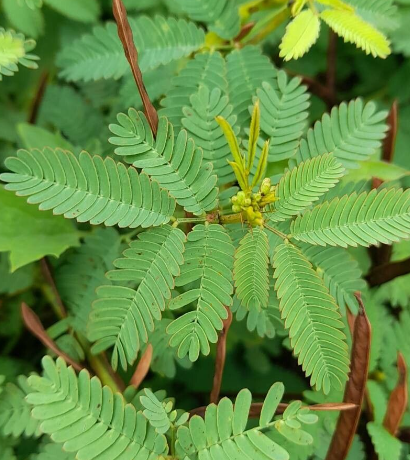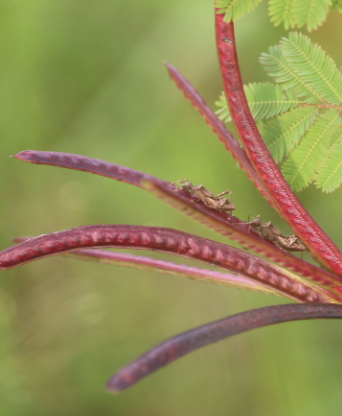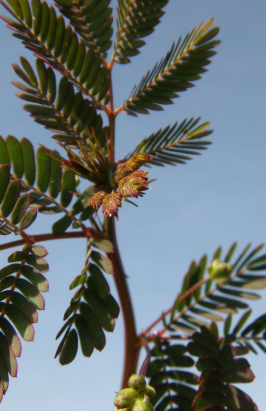Desmanthus Plant
Desmanthus (Desmanthus virgatus) grows up to 4 ft, prefers well-drained soil, full sun, moderate moisture, and is edible but not medicinal.
Habit
Shrub
Height
50 to 150 cm
Growth
Moderate
Soil
Well-drained sandy loam
Shade
Full
Moisture
Moderate
Edible
Yes [Animals]
Medicinal
No
Origin
Americas
Climatic Condition
Warm, dry
Temperature (°)
20 to 35
Humidity (%)
40 to 60
Potting media
Loamy soil mix
Fertilizers
High nitrogen
Watering
Moderate
Plant Weight
Yes
Flowering Time
Summer
Soil Ph level
6.0 to 7.5
Water Ph level
6.5 to 7.0
Soil EC
0.4 to 1.2
Yield Per Plant
2 to 4 kg per plant
NPK ratio
10:10:10
life Span
Perennial
Health Benefits
Forage plant, nitrogen fixer, soil erosion control.
Suggested Grow Media or Potting Mix ?
50% compost, 25% sand, 25% peat moss
Suggested Fertigation/Fertilizers
Fertilize every 6 weeks with phosphorus-based fertilizer.
Common Diseases and Remedies
Powdery Mildew, Rust, Leaf Spot, Aphid Infestation, Anthracnose.
White, powdery growth on leaves, Reddish pustules on leaves, Brown lesions on leaves, Distorted, yellowing leaves, Black lesions on stems.
Neem oil, sulfur spray, Compost tea, insecticidal soap, Prune infected parts and destroy them, Use Resistant Varieties.
Fungicides with potassium bicarbonate, Fungicides with propiconazole, Copper-based fungicides, Fungicides with azoxystrobin.
HEALTH BENEFITS
- Desmanthus species (like Desmanthus illinoensis) are nitrogen-fixing legumes.
- Some species have medicinal properties, including potential anti-inflammatory and antimicrobial benefits.
Used in traditional medicine for wound healing and digestion support.

